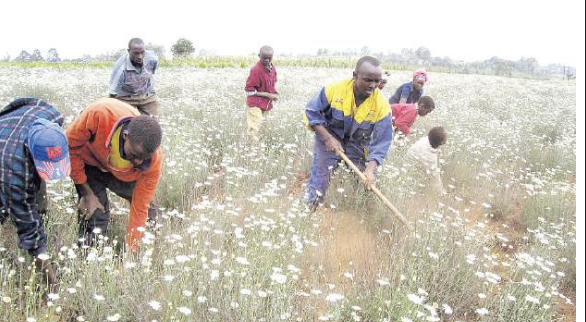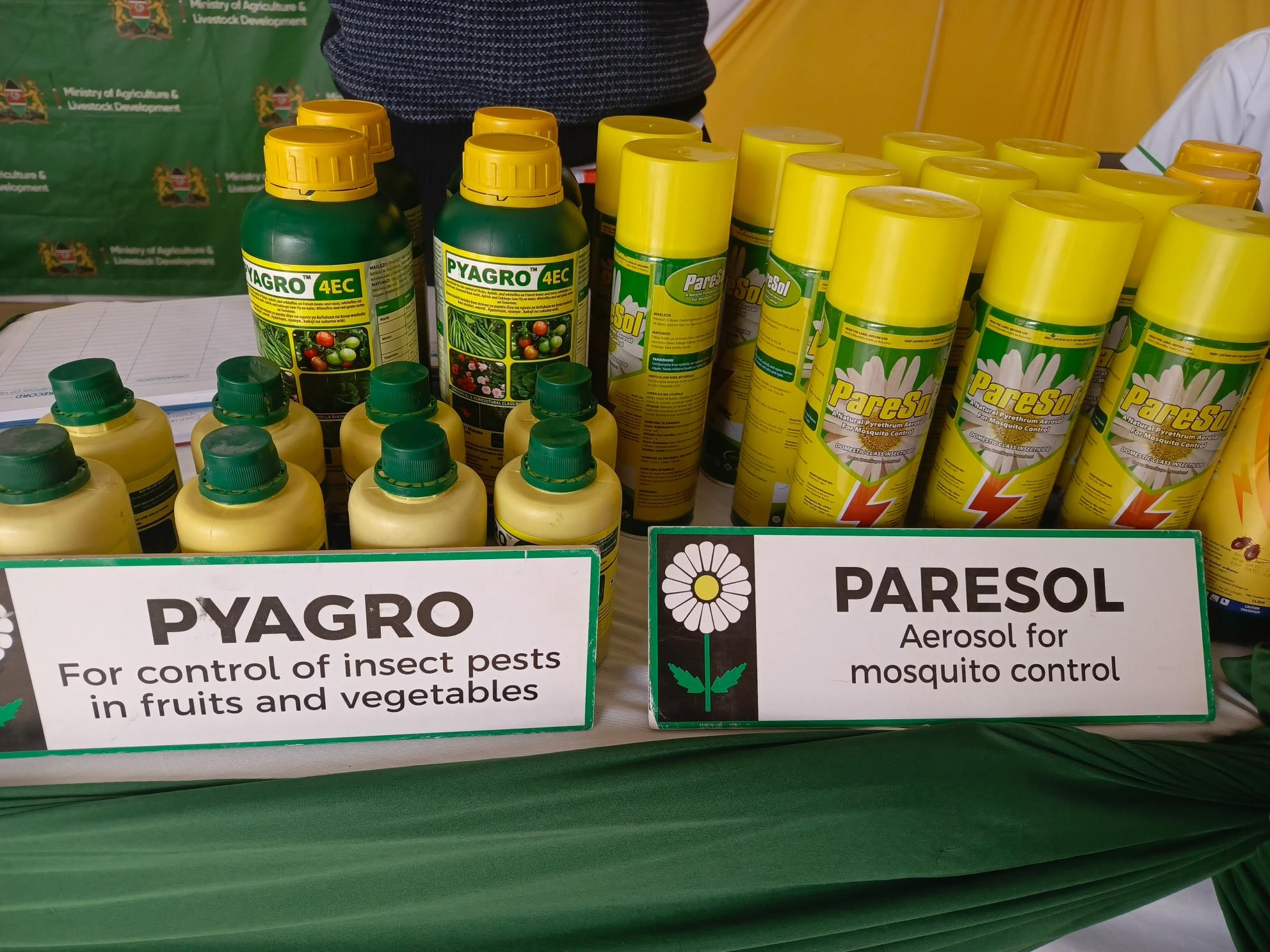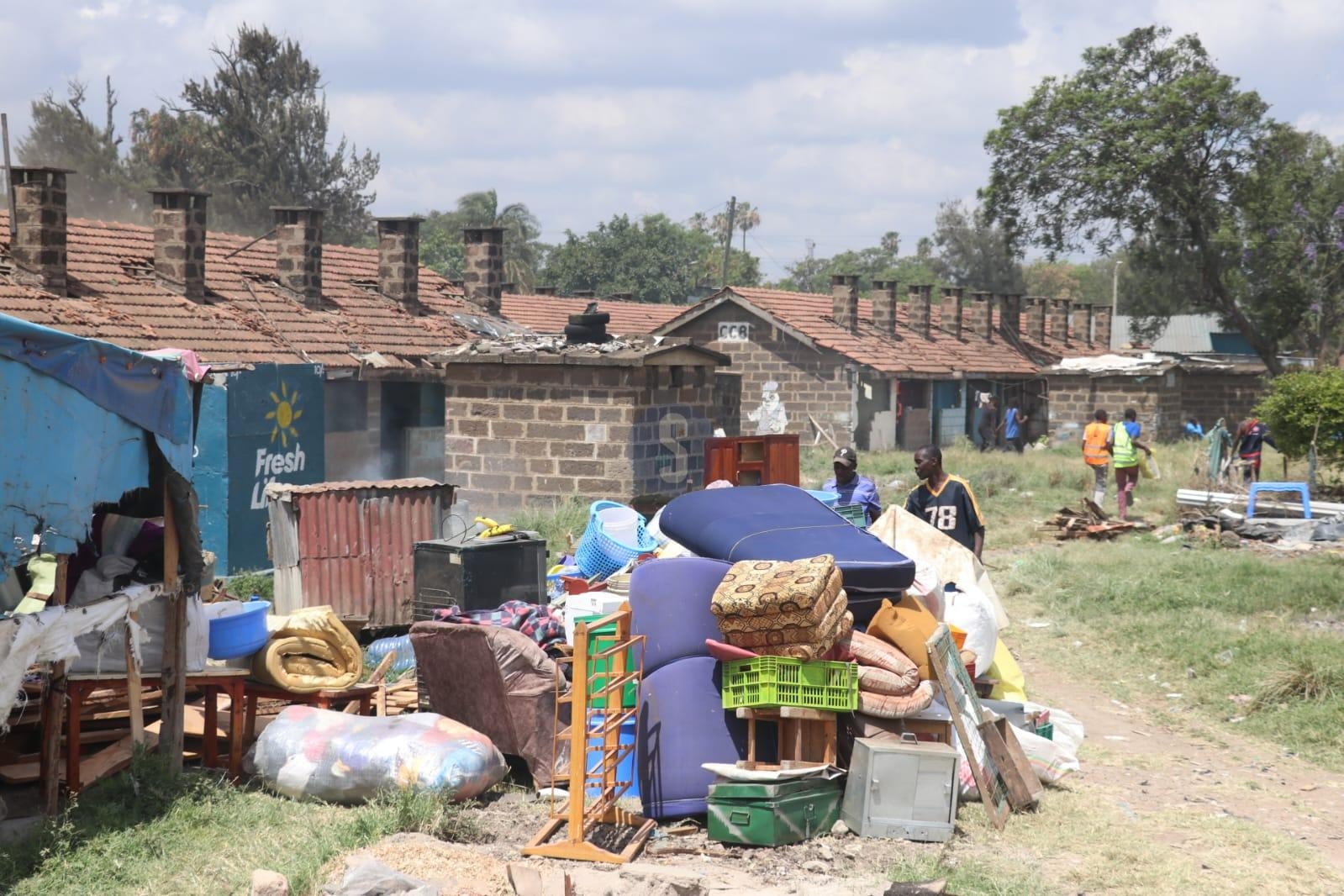
 Pyrethrum farmers in Nyandarua County/FILE
Pyrethrum farmers in Nyandarua County/FILE
The government is seeking to lease the Pyrethrum Processing Company of Kenya to a private operator as part of a larger plan to revive the struggling sector.
Agriculture CS Mutahi Kagwe told the Senate Plenary last week the shift towards a private sector–driven model has the full support of the company employees, who believe private capital and management are essential for restoring efficiency, competitiveness and profitability.
The proposal is already included in a Cabinet Memorandum he has submitted for approval.
The CS said the Pyrethrum Processing Company of Kenya's (PPCK) financial situation has become untenable, with the agency generating just Sh35 million annually, compared to its historic peak of Sh60 million, and lacking sufficient resources to sustain day-to-day operations or fund research—an essential element for rebuilding the value chain.
“There is simply not enough money to sustain the organisation,” Kagwe said.
According to a World Bank report, Kenya's pyrethrum peaked in production in 1992-1993 at 18,000 tonnes. Data from PPCk shows production was at its peak in the 1980s-1990s, with about 200,000 growers and in 1996, the sector earned Sh2.1 billion in foreign exchange.
The CS revealed farmers are owed Sh10 million for deliveries made between August and October, payments the government has committed to settle immediately. However, he warned that PPCK is weighed down by a Sh3.5 billion debt, including arrears owed to suppliers and staff pensions.
Although
a previous proposal sought to sell some of PPCK’s assets to offset part of the
debt, Kagwe said the process stalled due to delays in valuation reports,
meaning no assets have been sold.
With leasing now the preferred route, the government must first clean up PPCK’s balance sheet, conduct a fresh valuation of assets and carry out due diligence before onboarding a private operator.
Kagwe said Cabinet approval will unlock a long-term structure that mirrors successful private sector–run agricultural industries.
During his Senate submission, Kagwe pointed out measures the ministry is implementing across the pyrethrum value chain, including distribution of clean planting materials, expanded extension services and aligning production standards with global regulatory requirements to secure export markets.
Despite the challenges, Kagwe reaffirmed the government’s commitment to protect farmers, stabilise payments and position the sector for global competitiveness under a modernised policy regime.
Data from the Ministry of Agriculture shows pyrethrum is cultivated in 19 highland counties including Baringo, Elgeyo Marakwet, West Pokot, Bungoma (Mt Elgon), Trans Nzoia, Uasin Gishu and Nandi.
Others are Nakuru, Kericho, Narok, Laikipia, Nyandarua, Meru, Nyeri, Kiambu, Embu, Kisii and Nyamira.
The crop thrives at 1,700–3,000 metres above sea level, in well-drained volcanic soils with a minimum pH of 5.6, and requires annual rainfall above 800mm and cool temperatures below 18°C for at least six weeks to initiate flowering.
Kagwe said there are several ongoing policy reforms to boost production, enhance farmers’ livelihoods and address global market constraints.
A key strategy, he said, is upgrading planting materials.
“Through working with partners including AFA, PPCK and several private investors, the government has distributed millions of seedlings, seeds, clonal materials and tissue culture plantlets to counties such as West Pokot, Elgeyo Marakwet, Nyandarua, Nakuru and Kericho,” the CS said.
“The government is also encouraging private sector participation in pyrethrum growing and processing to enhance competitiveness. Companies such as Botanical Extracts, Kentegra Biotechnology and Africhem Technologies are already active in value addition and export-oriented production.”
In 2024-25, the state allocated Sh105 million and Sh125 million this financial year to PPCK for debt settlement, seed procurement, seedling propagation and extension services. However, Kagwe said these funds are still insufficient to fully revive the sector.
He said delayed payments remain a historical challenge, and the Agriculture and Food Authority is enforcing prompt payments at competitive rates based on pyrethrin content to incentivise production.
“Historically, farmers were paid an advance per kilogramme of delivered dry flowers, with the balance issued after pyrethrin content analysis. This system has collapsed due to cashflow constraints, undermining farmers’ ability to reinvest in their crop,” Kagwe said.
“The government has fully liberalised the sector to eliminate the monopoly previously held by the defunct Pyrethrum Board of Kenya and foster competition. To protect natural pyrethrum from market erosion, the state has also banned 77 synthetic pesticide products and restricted more than 200 others, promoting greater uptake of pyrethrum-based formulations.”
To reduce post-harvest losses, the CS said the ministry has supported counties with 72 solar dryers for demonstration and farmer adoption. At the same time, PPCK continues to propagate clean planting materials through its Muguga and Molo tissue culture laboratories.
On the export front, Kagwe told the Senate the government is actively working to secure foreign markets by ensuring compliance with international regulatory and manufacturing standards.
A draft Crops (Pyrethrum) Regulations 2024 is under development to guide nursery operations, processor licensing and export requirements.
Kagwe said the US market requires rigorous toxicological and efficacy data under the Environmental Protection Agency (EPA).
Kenya, through PPCK’s membership in the Pyrethrum Joint Venture (PJV), is renewing its certifications. In the European Union, pyrethrum falls under the Biocidal Products Regulation (BPR), with registration overseen by the European Chemicals Agency (ECHA), and Kenyan products continue to access EU markets through established distributors.
To improve product quality, he explained that PPCK is aligning with Good Manufacturing Practice (GMP), ISO standards, and Good Laboratory Practices (GLP).
“The company has already registered and commercialised seven pyrethrum-based products for animal health, agriculture, public health and industrial use,” Kagwe said.
“The government is also promoting agro-processing zones and Special Economic Zones
(SEZs) where processors can access affordable industrial space for
pyrethrum-based manufacturing.”



















